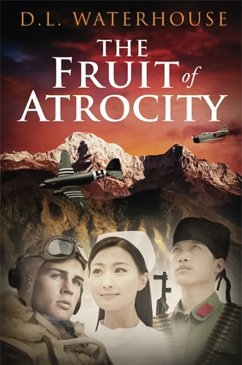The atrocities inflicted upon the citizens of China by the Japanese soldiers were committed and forgotten, without regard of consequence or effect. However, through the children left in the wombs of the innocent mothers, the testimony of the fruit of those terrible atrocities has been preserved for the generations to come as an eternal witness to the crime of war.
The Fruit of Atrocity is a metaphoric depiction of that crime. It is the story of one C-47 pilot and both his faith and lack of faith as he fought and risked his own life and the lives of his family to save sixteen of those children of mixed race from certain death.
Dieser Download kann aus rechtlichen Gründen nur mit Rechnungsadresse in A, B, BG, CY, CZ, D, DK, EW, E, FIN, F, GR, H, IRL, I, LT, L, LR, M, NL, PL, P, R, S, SLO, SK ausgeliefert werden.









